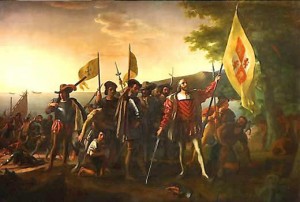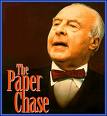Happy Columbus Day?
 We have put aside naive notions of Christopher Columbus as the heroic discoverer of the New World, but on Columbus Day and in general we should continue to contemplate the troubling bases and ramifications of Columbus’ voyages.
We have put aside naive notions of Christopher Columbus as the heroic discoverer of the New World, but on Columbus Day and in general we should continue to contemplate the troubling bases and ramifications of Columbus’ voyages.
Columbus’ voyage in 1492 rested on his contractual agreement with the King and Queen of Spain. In return for spices and especially the gold he anticipated finding, Columbus received financing for three small ships and a combined crew of 40 and also promises of ten percent of all profits, the lucrative governorship of any new-found lands, and the title “Admiral of the Ocean Sea.” Columbus returned from his first voyages with a few spices, gold he had plucked from native peoples’ ear lobes, and 350 newly enslaved men and women. (An additional 250 had died on the sail back to Spain.) The King and Queen were impressed enough to finance a second expedition in 1493 of seventeen ships with 1200 men–including a full cavalry troop and a half-dozen priests. The fleet raided and plundered the Caribbean islands and was followed by subsequent large expeditions under Columbus’ command in 1498 and 1502.
The indigenous peoples of the Caribbean paid the heaviest price for these ventures.

